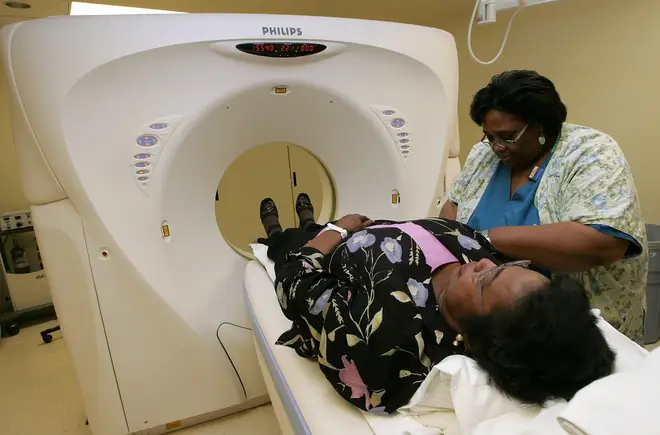
Iain Dale 10am - 1pm
21 March 2023, 21:41

Taking the pill or any kind of hormonal contraception increases the risk of developing breast cancer by 25%, a major study by Oxford University has shown.
The study compares the NHS records of 100,000 women diagnosed with breast cancer between 1996 and 2017.
It compares those records with a control group of 18,000 women of the same ages and at the same GP practices who did not have breast cancer.
All forms of hormonal contraception for women, including the pill, intrauterine device (IUD or coil) and implant increased the risk of getting breast cancer by between 23% and 32%.
The study, published in Plos Medicine, is the first to establish a link between all forms of hormonal contraception and breast cancer, although the combined pill had also previously been shown to have a "small" increase in risk.

Caller with incurable cancer supports nurses 'in everything they're doing'
Gillian Reeves, professor of statistical epidemiology and director of the Cancer Epidemiology Unit, University of Oxford, said: "I don't really see that there's any indication here to say that women need to necessarily change what they're doing."
She added: "Yes, there is an increase here, and yes, nobody wants to hear that something that they're taking is going to increase their risk for breast cancer by 25%.
"The main purpose of doing this research was really to fill a gap in our knowledge.
"We've known for many years that combined oral contraceptives, which women have been using for decades, also have an effect on breast cancer risk, a small increase in risk which is transient.

"We weren't absolutely sure what the corresponding effect of these progestogen-only contraceptives would be.
"What we've shown is that they're just the same in terms of breast cancer risk, they seem to have a very similar effect to the other contraceptives, and the effect that we've known about for many years.
"I suspect that if women were prepared to accept those risks in the past, in return for the many benefits of taking hormonal contraceptives, then they may well be prepared to carry on doing that.".

MP attends Australian parliament dressed as Tina Turner for cancer fundraiser
Kirstin Pirie, statistical programmer at Oxford Population Health, and one of the lead authors, said: "Given that a person's underlying risk of developing breast cancer increases with advancing age, the absolute excess risk of breast cancer associated with either type of oral contraceptive will be smaller in women who use it at younger ages.
"These excess risks must, however, be viewed in the context of the well-established benefits of contraceptive use in women's reproductive years."
The research suggests use of progestogen-only contraceptives has increased substantially in recent years, but information on their association with breast cancer risk was limited.
In 2020, there were almost as many prescriptions issued in England for progestogen-only oral contraceptives as there were for the combined pill.
Researchers analysed data from 9,498 women who developed invasive breast cancer between ages 20 to 49 and 18,171 closely matched women without breast cancer.
The data was collected by the Clinical Practice Research Datalink (CPRD).

Dr Kotryna Temcinaite, head of research communications at Breast Cancer Now, said: "For both types of contraceptives, if you stop using them, this added risk of breast cancer reduces over time.
"The study didn't look at what hormonal contraceptives the women may have used in the past or consider how long they may have been on the progestogen-only contraception.
Read more: Iain Dale chokes up after caller's devastating terminal cancer story
Read more: Jurassic Park's Sam Neill shares 'dark moments' after stage 3 cancer diagnosis
"It also didn't factor in whether a family history of the disease contributed to their level of risk. So further work is needed to help us fully understand the impact of using this type of contraception.
"Breast cancer is rare in young women. A slight increase in risk during the time a woman uses hormonal contraceptive means only a small number of extra cases of the disease are diagnosed."